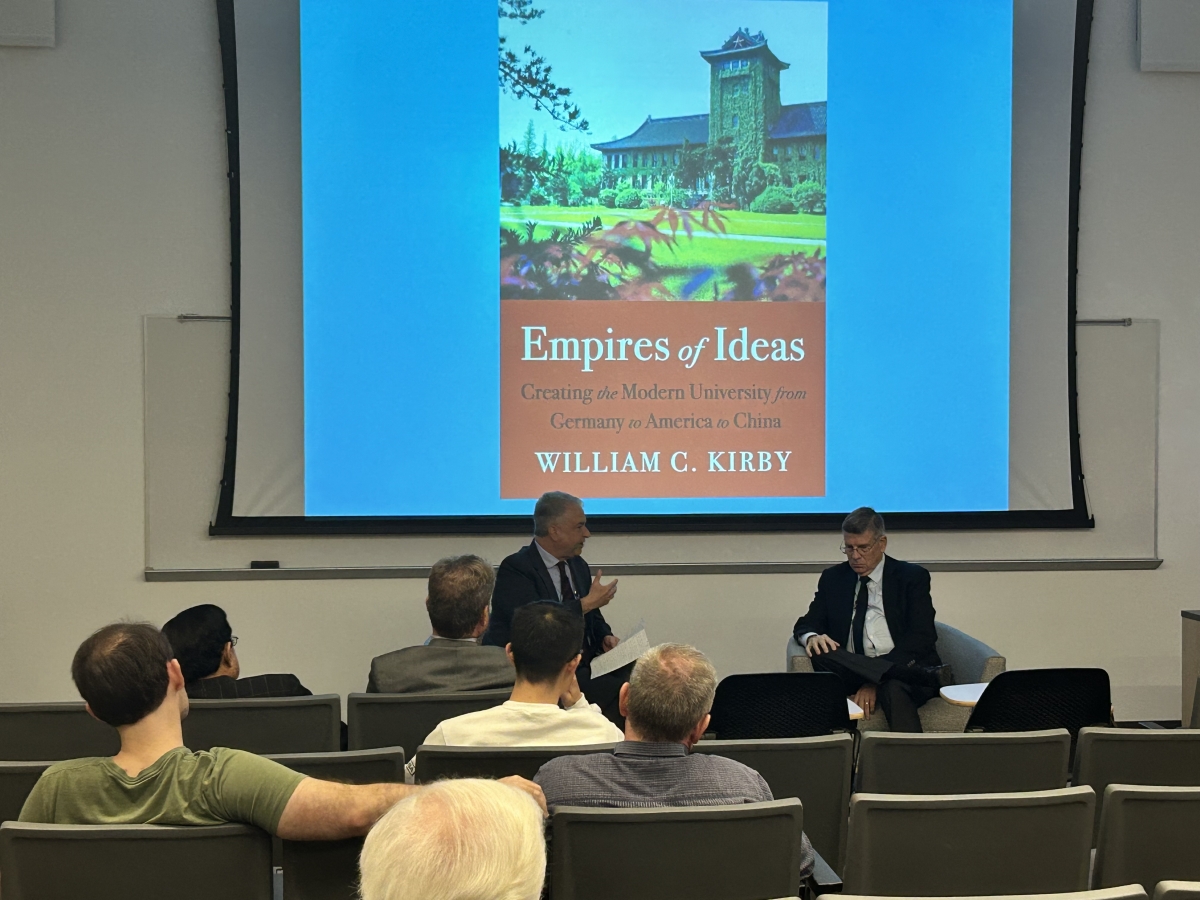Dr. William C. Kirby Reflects on the Economic, Cultural, Political Significance of the Modern University in Germany, the U.S., and China

HOUSTON, March 2, 2023 — In partnership with Rice University, the George H. W. Bush Foundation for U.S.–China Relations, and Born Global Ventures, Asia Society Texas presented a program with Harvard Business School Professor Dr. William C. Kirby on his latest book, Empire of Ideas: Creating the Modern Universities from Germany to America to China, offsite at Rice University. Following a lecture by Dr. Kirby, David Firestein, the inaugural president and CEO of the Bush China Foundation, moderated a discussion exploring the social, economic, and political importance of the modern university.
Help Us Build a More Inclusive World
The book Empires of Ideas examines the past 200 years in higher education, chronicling two crucial moments: the origins of the research university and its subsequent integration with the liberal education model. Dr. Kirby addressed the histories and current developments of leading universities in Germany and the U.S., highlighting the University of Berlin, the Free University of Berlin, Harvard, Duke, and the University of California, Berkeley, among others. He also compared the trajectories of these universities with renowned Chinese universities including Tsinghua University, Peking University, and Nanjing University, among others. Emphasizing that these universities are “part of a shared world” as well as a shared tradition that began with the creation of the modern research university around 1910, Dr. Kirby underlined the relevance of free speech, meritocracy, and investment to promote high-quality higher education.
Noting that some of China's first universities, like the case of Tsinghua, were designed to support and prepare students to travel abroad to pursue additional higher education, Dr. Kirby elaborated that the current situation has been reversed, as China is actively promoting and receiving students from all over the world for undergraduate and graduate programs. From his perspective, China has the potential to lead the world in higher education, but there are still many questions that must be addressed before that would happen.
During the discussion, both Dr. Kirby and Firestein reflected on the political, cultural, and economic implications of higher education for the U.S.–China relationship, expressing its significance beyond the educational field.
About Asia Society Texas
Asia Society Texas believes in the strength and beauty of diverse perspectives and people. As an educational institution, we advance cultural exchange by celebrating the vibrant diversity of Asia, inspiring empathy, and fostering a better understanding of our interconnected world. Spanning the fields of arts, business, culture, education, and policy, our programming is rooted in the educational and cultural development of our community — trusting in the power of art, dialogue, and ideas to combat bias and build a more inclusive society.

